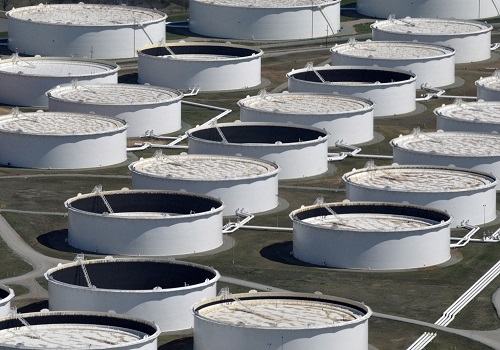Oil slips from seven-year high ahead of more U.S.-Iran talks

Follow us Now on Telegram ! Get daily 10 - 12 important updates on Business, Finance and Investment. Join our Telegram Channel
LONDON - Oil slipped to around $91 a barrel on Tuesday ahead of the resumption of indirect talks between the United States and Iran, which could revive an international nuclear agreement and allow more oil exports from the OPEC producer.
A deal could return more than 1 million barrels per day (bpd) of Iranian oil, equating to more than 1% of global supply, to the market. The nuclear talks are due to resume in Vienna on Tuesday.
"If sanctions against Iran are lifted, global crude oil supply may receive much-needed support," said Naeem Aslam, chief market analyst at Avatrade.
Eight rounds of indirect talks between Tehran and Washington since April have yet to result in an agreement on a resumption of the 2015 nuclear pact, with differences remaining over the speed and scope of the lifting of sanctions.
"Exports could resume swiftly if a nuclear deal is reached," said Tamas Varga of broker PVM. "But it is a big 'if'. The re-emergence of Iranian barrels is only a possibility at this stage."
Brent crude was down $1.76, or 1.9%, at $90.93 a barrel by 1315 GMT after hitting a seven-year high of $94 on Monday. U.S. West Texas Intermediate crude fell $1.67, or 1.8%, to $89.65.
Both benchmarks have found support this year from rising global demand, Russia-Ukraine tensions, supply disruptions in producers such as Libya and a slow easing of 2020's record output cuts by OPEC and its allies.
Prices were also dented on Tuesday by comments from French President Emmanuel Macron, who said his meeting with Russian counterpart Vladimir Putin had helped to prevent a worsening of the Ukraine crisis.
Oil also came under pressure from the prospect of an increase in U.S. crude inventories. Analysts estimate that inventories rose by 700,000 barrels in the week to Feb. 4.
The first of this week's two supply reports, from the American Petroleum Institute, is due at 2130 GMT. [EIA/S]












 320-x-100_uti_gold.jpg" alt="Advertisement">
320-x-100_uti_gold.jpg" alt="Advertisement">












